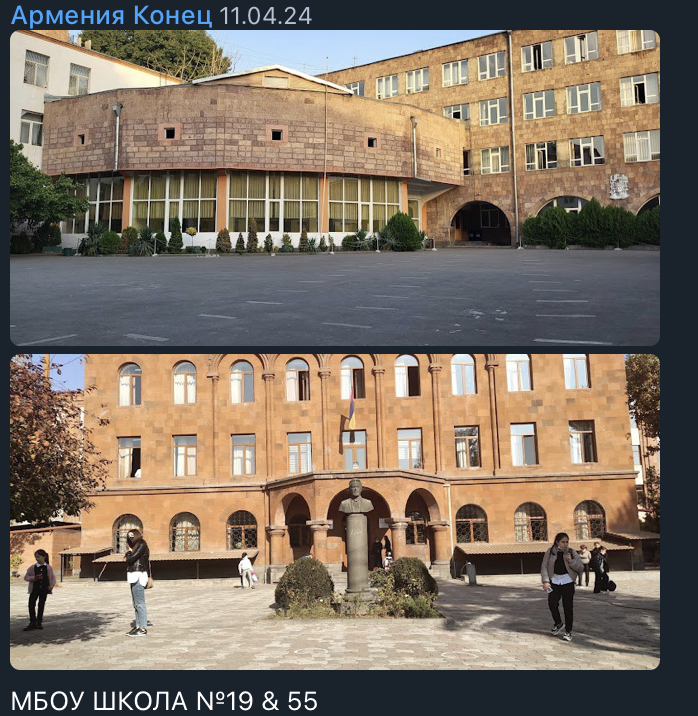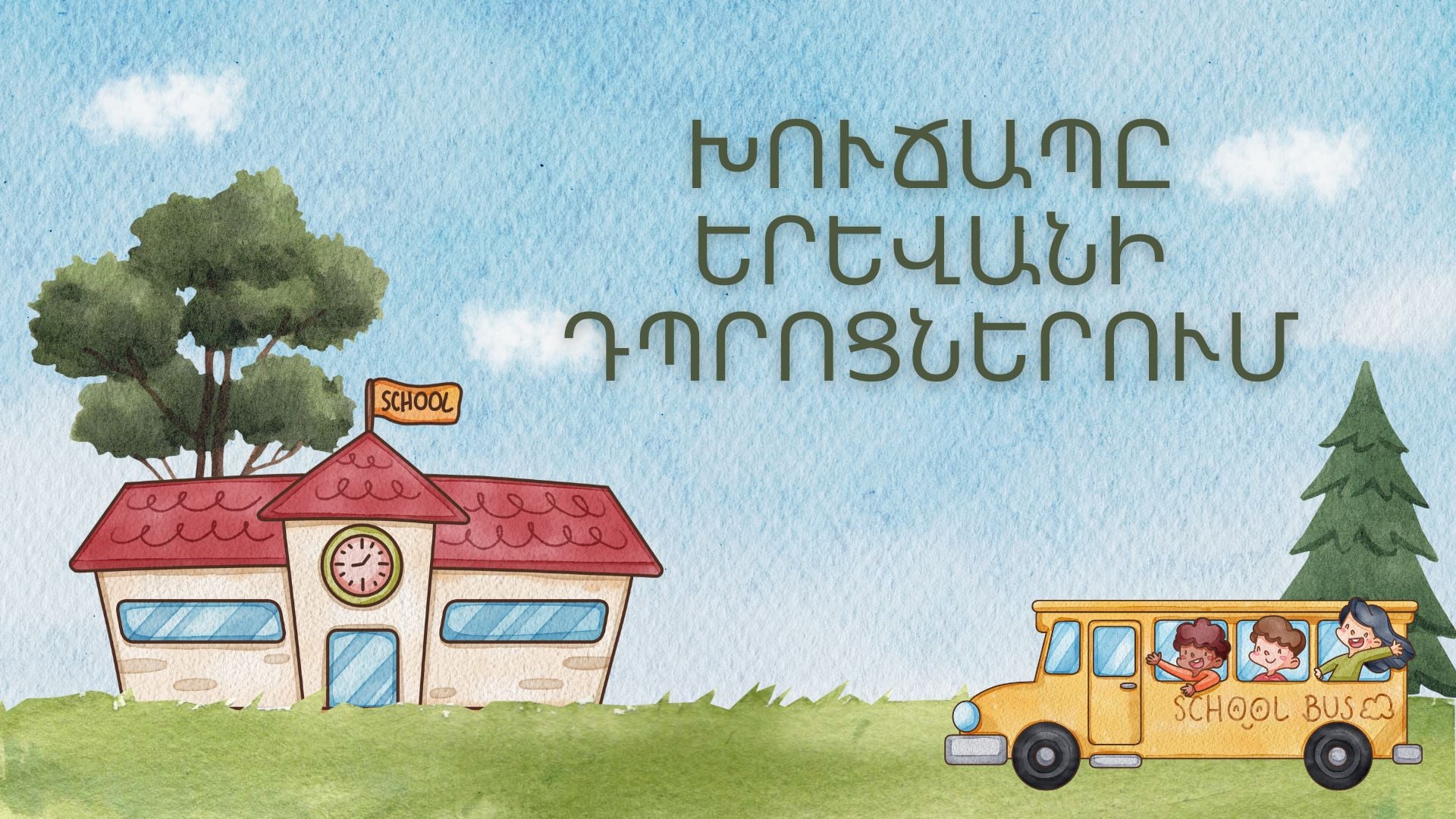The false announcement, spread via Telegram on April 11th, about an expected armed attack on schools caused panic in Yerevan the following day.
As a result, in some schools, the administration suspended classes internally, while in other schools, parents picked up their children and took them home. In many cases, parents who were informed earlier did not send their children to school; this resulted in canceled classes, traffic congestion in the city, unavailability of taxi services, and many children and adults experiencing severe mental distress.
All of this happened because of a single Telegram channel in just a matter of hours.

Image from the Telegram channel
Naturally, everyone is concerned about who was behind this hoax. We may speculate, but clear evidence will likely never surface. Regardless, it was probably a calculated information diversion.
It is crucial to learn lessons from this incident given that the underlying issues have persisted for a long time.
A.It has been evident for quite some time that the Armenian society is facing hybrid threats and attacks that demand an appropriate response from the state authorities. Hybrid issues often involve the participation of multiple state institutions. However, the work needs to be carried out systematically. When state institutions get bogged down by bureaucracy, the situation can quickly spiral out of control, leading to the worst possible outcome.
A hybrid attack implies attacks on ambiguous areas where it is unclear who is responsible for a particular function. Although it is possible to speculate and propose a central hub to respond to hybrid threats, the current situation demands the development of swift interagency responses.
B. No matter how prompt actions are necessary, public communication remains a priority. Had the public been assured of the security forces’ awareness and preparedness on April 12, the panic and fear among them may have been less extensive and intense.
One can argue that if the authorities had released statements early in the morning, it might have resulted in opposite consequences. Many unaware people might have read the Telegram messages, and the panic could have intensified even more. The point is that such situations should have been anticipated and tested beforehand. The authorities should have been prepared with a multi-layered, multi-step, and rapid information response. Furthermore, the content, vocabulary, and tone of the disseminated messages are crucial. It is well-known that exhortations not to panic often have the opposite effect and intensify panic instead.
Thus, the state needs a clear communication strategy, scenarios, exercises, etc.
C. It is crucial to have clarity among all circles. School principals and teaching staff may not always know how to handle such cases, but they should be prepared with clear steps and actions and know how to communicate effectively with parents and children. Unfortunately, chaos, panic, and improvisation tend to dominate in these situations, leading to more confusion and stress.
D. What the state bureaucracy loves most is immediately turning the page, forgetting everything, and returning to the daily routine. However, we have thousands of parents who are under severe stress, especially children, but no one has worked with them systematically. We just move on. But who is to blame? Until now, we have not provided systematic psychological help to those who participated in the war, forcibly displaced Artsakh citizens, let alone managed to work with panicked children and their parents.
As always, this too shall pass..







